
Ophthalmology Residency at WMC and Metropolitan
The Department of Ophthalmology at New York Medical College (NYMC) is dedicated to the education of residents in preparation for their entry into the field of ophthalmology. The goal of the program is to enable our residents to achieve their professional goals of clinical practice, academia, or fellowship. Our training program has two locations: Westchester Medical Center (WMC) and NYC Health + Hospitals/Metropolitan. Each institution offers a unique setting and patient base. In combination, these institutions provide a broad scope and depth of clinical experience for our residents.
Westchester Medical Center (WMC)
The principal hospital is Westchester Medical Center, a tertiary care facility with a level one trauma and burn center, which serves 3.5 million residents of the Mid-Hudson Valley, including Westchester County, and surrounding area in Connecticut and Pennsylvania. With the NYMC campus adjacent, residents have ample opportunities to work with basic science professors on research projects and with core faculty at WMC and Maria Fareri Children’s Hospital, in both outpatient settings and daily inpatient consult rounds.
NYC Health + Hospitals/Metropolitan
NYC Health + Hospitals/Metropolitan (Metropolitan) was founded in September 1875, the same year it began its affiliation with the New York Homeopathic Medical College (now known as NYMC). This relationship has become the oldest medical college-hospital affiliation in the United States.
Today, Metropolitan is a full-service community hospital that provides culturally sensitive, state-of-the-art care and leading-edge technology in a modern environment to patients from all five New York City boroughs in a welcoming and hospitable setting. Close patient supervision by a specialty-trained multidisciplinary team of health professionals helps ensure that patients receive the best, most effective care possible. During their rotations at Metropolitan, residents receive supervised training by faculty well-known in their subspecialties.
How to Apply
NYMC participates in the Ophthalmology Residency Matching Program established by the Association of University Professors of Ophthalmology (AUPO). The AUPO sponsors the matching process and is responsible for the enforcement of applicable rules. The function of SF Match is strictly limited to processing the match.
The Ophthalmology Matching Program takes place in January and will be used to process all applicants who want to start their residency training in July of the following year. Applicants are responsible for ensuring they meet all eligibility prerequisites prior to registering for the Match.
All ophthalmology residents complete their PGY-1 preliminary training at Metropolitan Hospital, an ACGME-approved program, before beginning PGY-2 Ophthalmology Residency.
For more information and application deadlines, go to www.sfmatch.org.
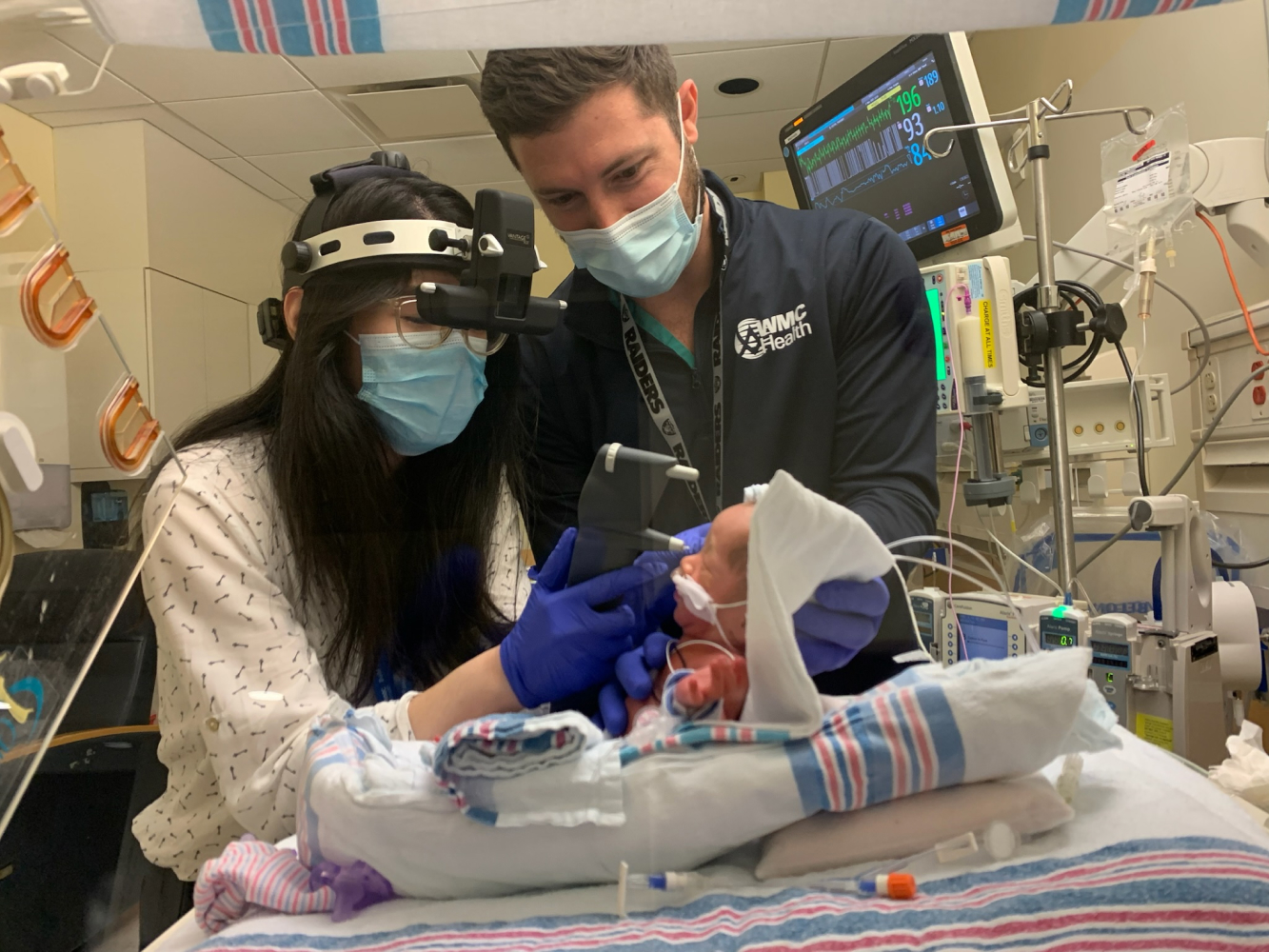
Residents examine a neonate in Maria Fareri Children’s Hospital ICU.
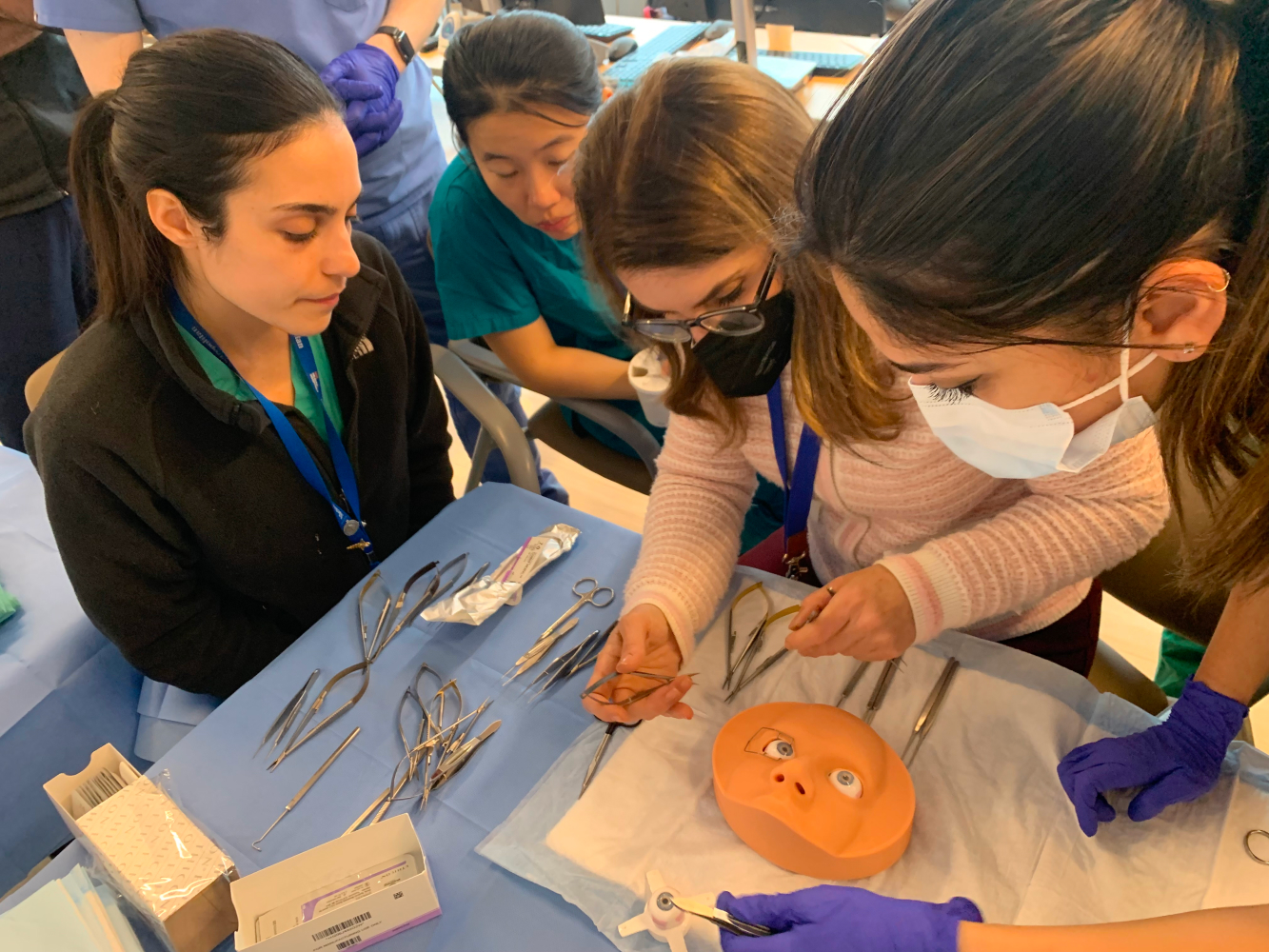
Residents developing surgical skills in wet lab.
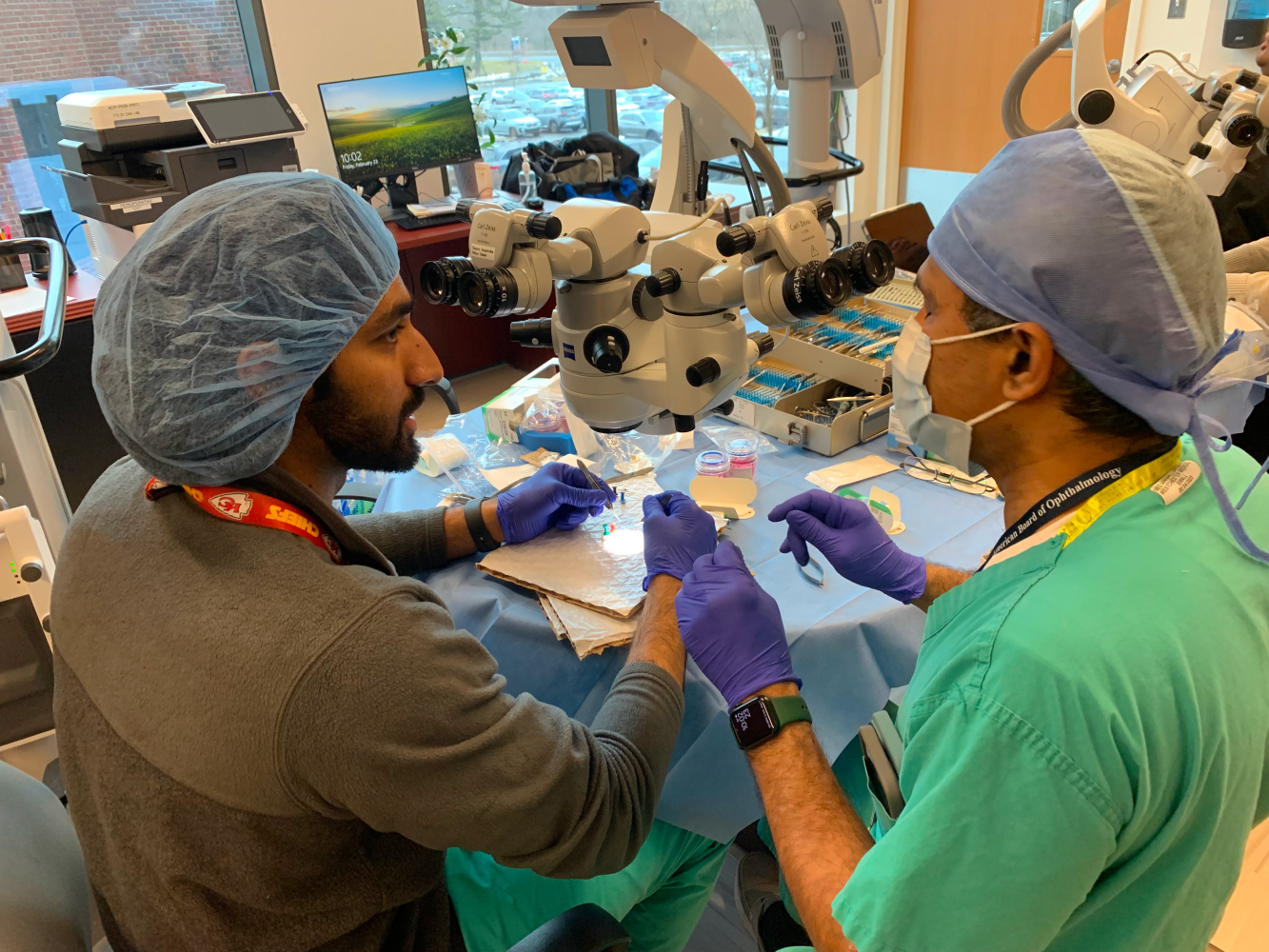
Residents working with microscope while developing surgical skills in wet lab.
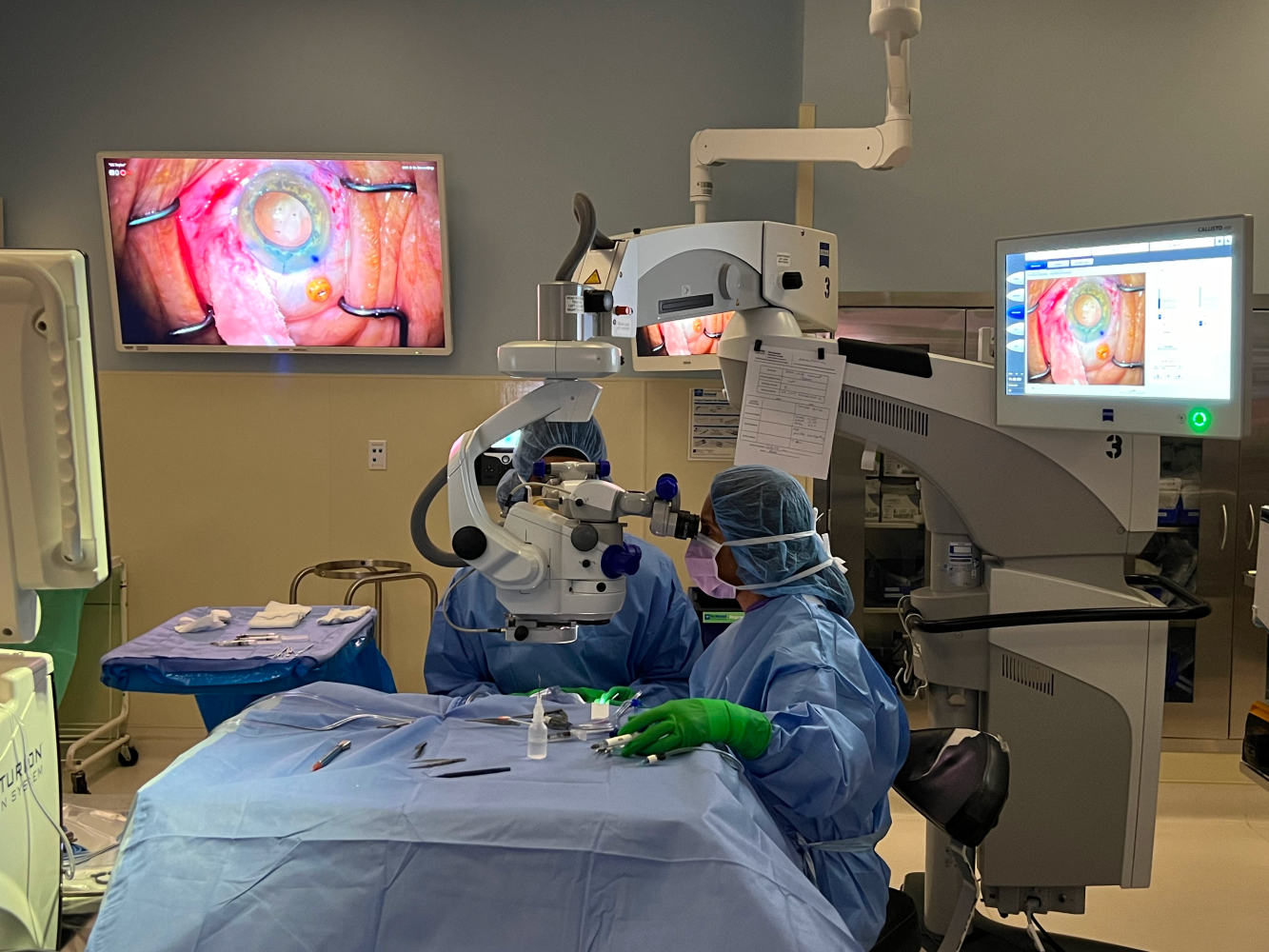
Residents working in a state-of-the-art operating suite.
Education and Curriculum
NYMC offers a three-year, ACGME fully accredited program providing comprehensive training in the New York area. The residents rotate through the two sites, WMC and Metropolitan through the three years of residency.
Clinical Rotations
During their first year, ophthalmology residents spend eight months at WMC seeing patients in outpatient clinics and doing inpatient consults. The primary emphasis is on comprehensive ophthalmology but there is significant exposure to the subspecialty clinics, such as cornea, glaucoma, uveitis, oculoplastics, neuro-ophthalmology, and retina. At Metropolitan, residents spend time in the comprehensive and specialty ophthalmology clinics. First-year residents perform minor surgical procedures, such as eyelid lesion excision, lid laceration repair, and ocular surface procedures, such as pterygium excision. They serve as first assistant in more complex cases in the operating room several times each month. In addition, the first-year residents perform anterior segment and retinal lasers along with intraocular injections in the clinic. The exposure the residents have in their first year allows them to become comfortable with performing intraocular surgical procedures as early as their second year.
Second-year residents spend eight months at WMC in the specialty clinics—retina, pediatric ophthalmology, and oculoplastics—continuing to hone their clinical skills in addition to learning newer ophthalmic surgical techniques. At Metropolitan, residents cover comprehensive as well as specialty clinics and begin to perform retina procedures.
During the third year, residents rotate through comprehensive ophthalmology clinics at both sites, spending equal time at each location, with more focus on intraocular surgery, including cataract, glaucoma, and corneal procedures. As third years, residents spend one to two days in the operating room and see a higher volume of patients in the outpatient clinics with higher autonomy simulating an independent practicing physician. During this year, residents also spend time in private office settings observing and learning skills about how to operate an outpatient private office efficiently as well as assisting in more complex challenging cases.
On Call
The first-year residents take primary call responsibility every fourth day with one weekend typically in a month, covering both hospitals. This gives them the most experience in triaging and dealing with ocular emergencies. During the first two weeks of the academic year, the first years take “buddy call” with the second years, with a senior resident and attending accessible for additional consultation. Calls can be taken from home with the second years and third years sharing the backup calls. This unique feature allows the second years to obtain surgical experience dealing with ocular emergencies very early in their training. There is an on-call attending for general ophthalmology, oculoplastics, and retina at all times.
Academic Program
The NYMC Residency Program places a strong emphasis on academic activities with a mandatory dedicated weekly didactic program for all residents on Friday morning (7:30 a.m. to 11:30 a.m.). This includes resident case presentations for open discussion with the faculty, as well as dedicated lectures by faculty based on the Basic and Clinical Science Course series and reviewing Ophthalmic Knowledge Assessment Program (OKAP)/Board questions.
Every year, the residents take a mock written OKAP exam and a mock oral examination. These simulate the actual American Board of Ophthalmology written and oral examinations and help prepare residents for these national board examinations administered after residency.
The residents participate in Journal Club Dinners during the academic year, presenting the most relevant articles to enhance evidence-based medical practice. Journal Club is highlighted by lively discussion with the faculty.
Grand Rounds take place on the second Monday of the month. An interesting resident case presentation is followed by an invited guest lecture. This broadens the residents’ exposure to cutting-edge work being performed outside their own institution and provides an opportunity to interact with the guest speaker.
Monthly Patient Adversity Conferences provide the opportunity for all residents and faculty to share challenging clinical and surgical cases and discuss varied approaches aimed at optimizing patient outcomes.
An annual departmental Resident Research Symposium in the spring provides a venue for residents to present their work, which may include a clinical or basic research project, a quality improvement project, or an edited surgical video.
Third-year residents can develop their leadership skills by attending the American Academy of Ophthalmology Advocacy Ambassador Program, in Washington, D.C.
Annually, all residents attend a Westchester Ophthalmologic Society meeting, where they network with Westchester’s local ophthalmologists over dinner. One resident is selected to present a case to the society, and all residents enjoy the guest lecture.
Additional enrichment sessions take place throughout the year and include discussion of such topics as medical malpractice, strategies for successful fellowship application, and private practice negotiation.
Wellness Events
We care about our residents and are mindful of wellness and the need to maintain both a healthy mind and body to support successful learning. Duty hours are enforced to avoid fatigue. Several wellness events take place throughout the academic year. While every faculty member is openly available for resident support, our Faculty Mentorship Program specifically pairs each resident with a faculty mentor to chat over lunch with at least twice a year.
Additionally, NYMC offers strictly confidential academic support services as well as psychological support services with 24-hour hotline access for all residents.
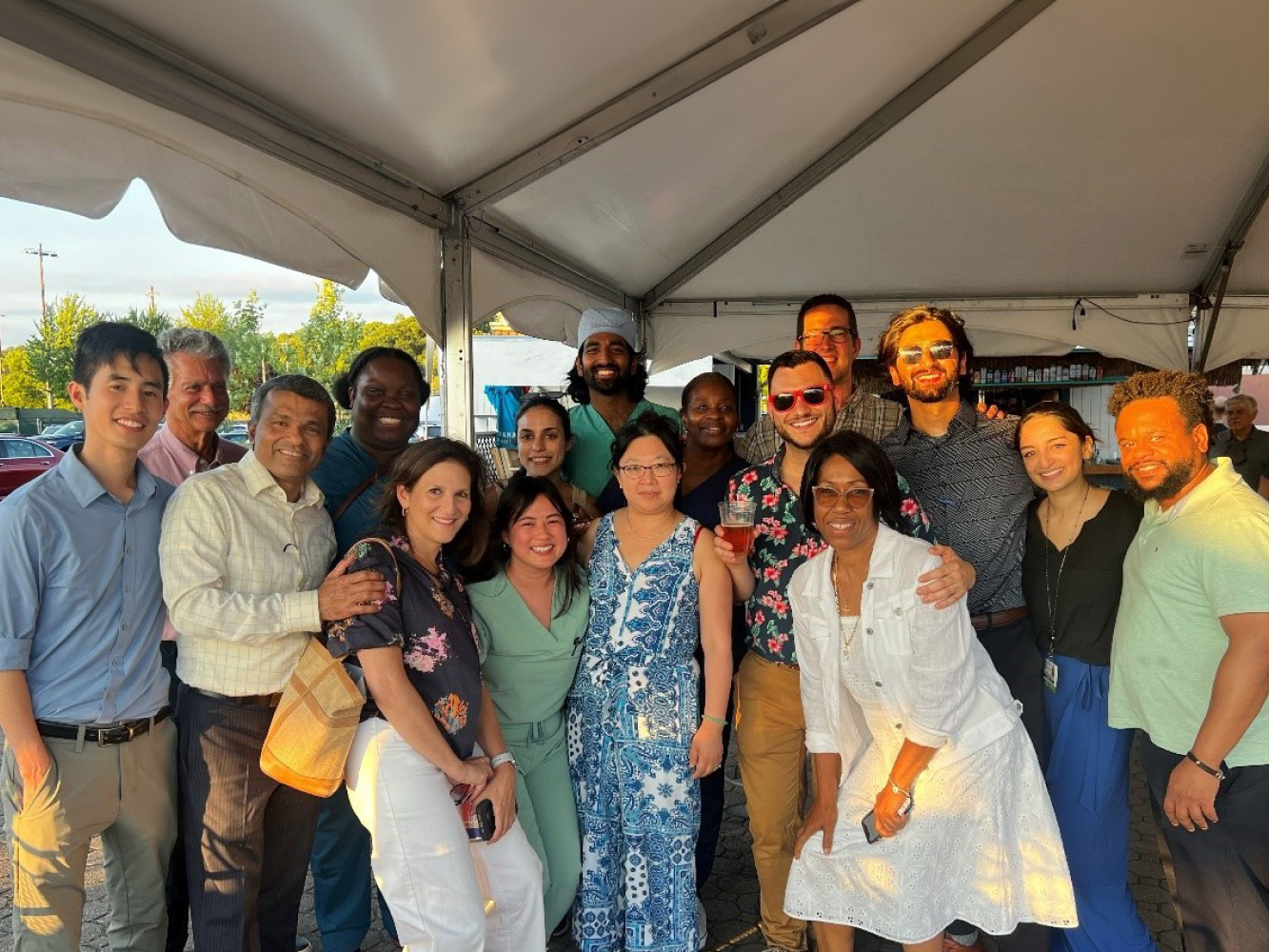
Happy hour to welcome new resident to the program.
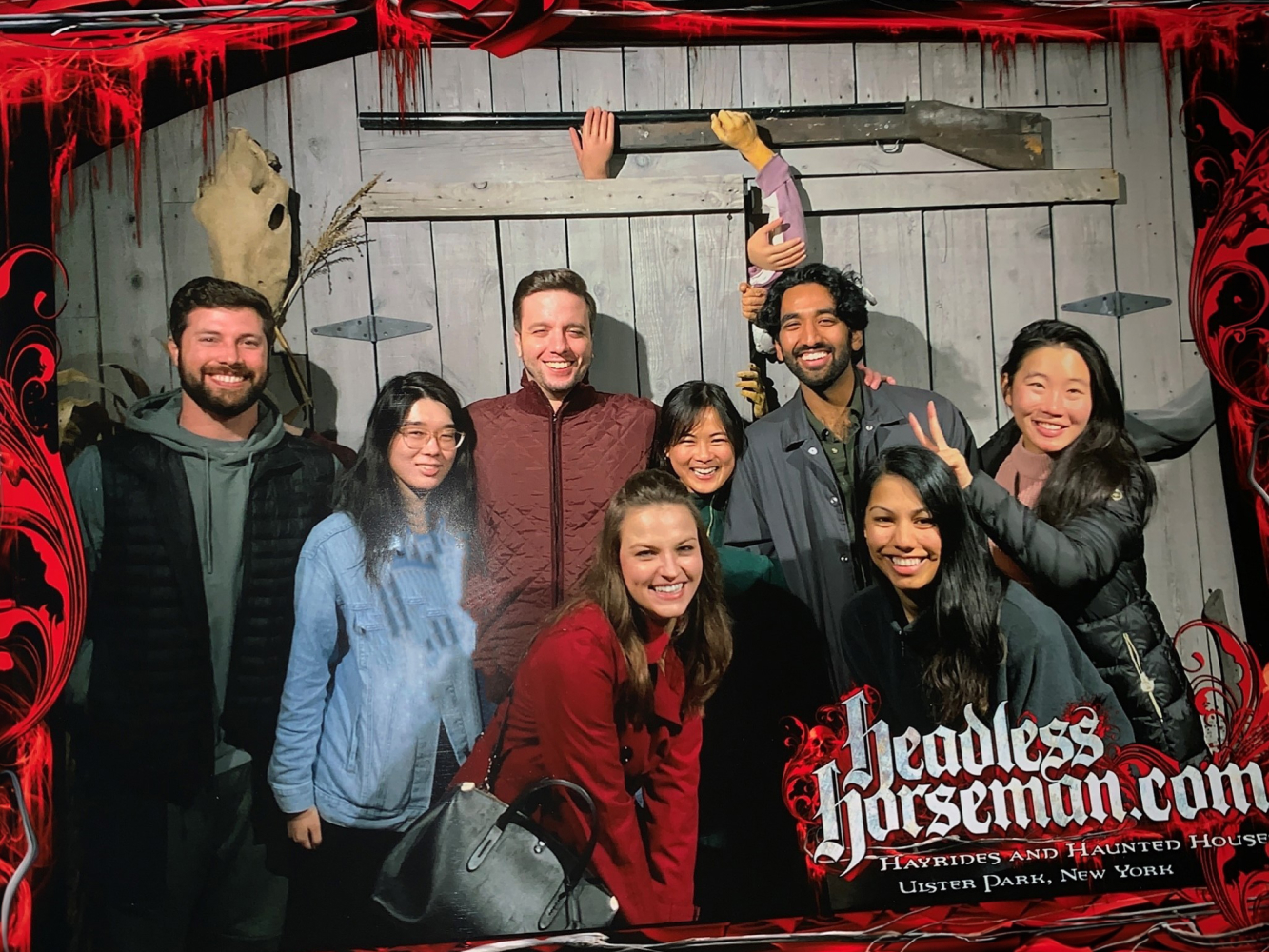
Residents visited the Halloween Headless Horseman at Magic Moon Farm.
Research
Residents are encouraged to participate in research activities and to present their work at conferences and publish in peer-reviewed journals.
The third-year residents attend one major ophthalmology conference, usually either the American Academy of Ophthalmology or the American Society of Cataract and Refractive Surgery.
Additionally, any resident who is first author on a poster or platform presentation is supported to attend that meeting.
Resident Benefits
To find out more about our competitive salary and benefit package for Westchester Medical Center employed residents and fellows, visit Westchester Medical Center Residents Benefits. for salary and benefits info. Metropolitan-based residents should contact their program coordinator for applicable benefits.

